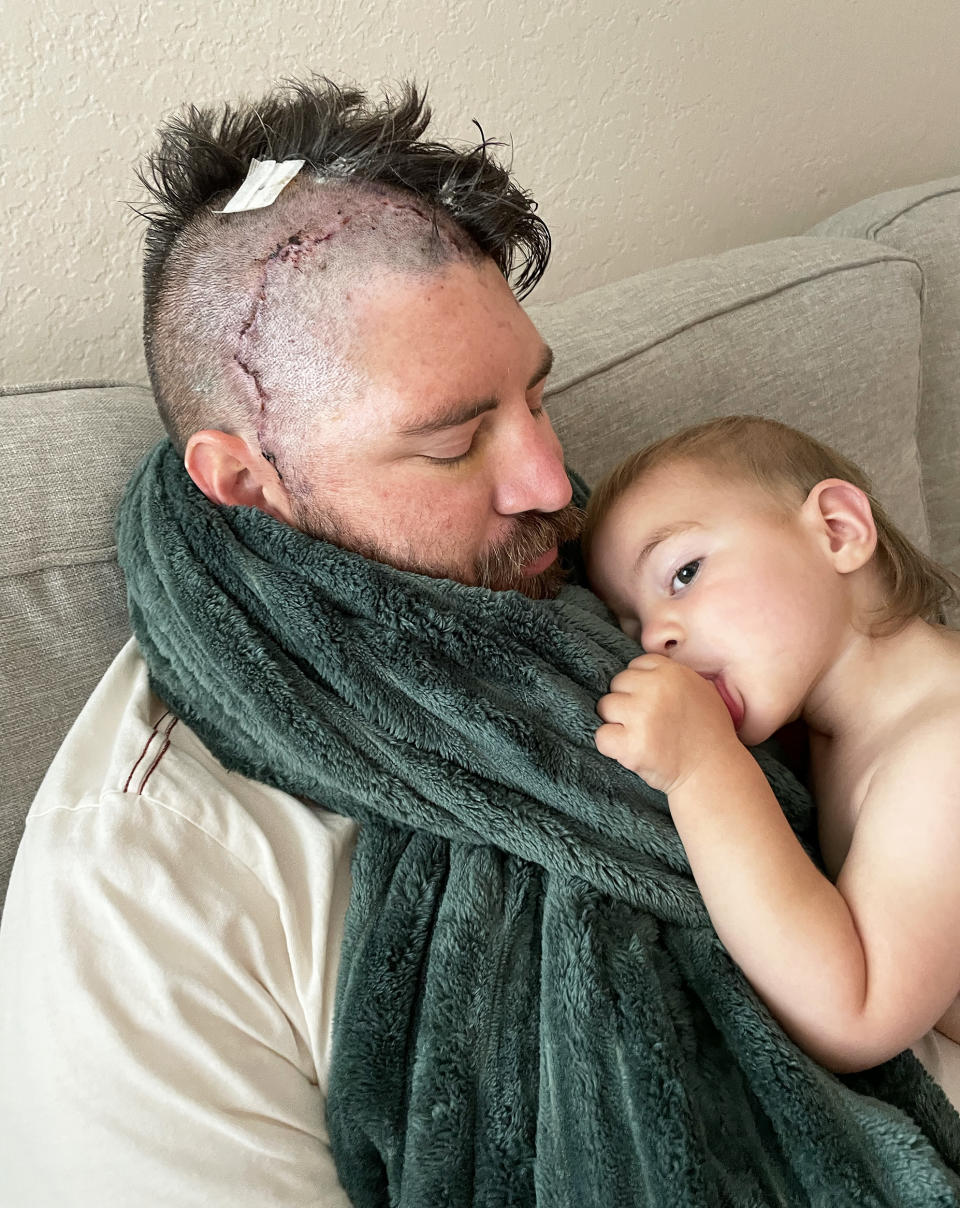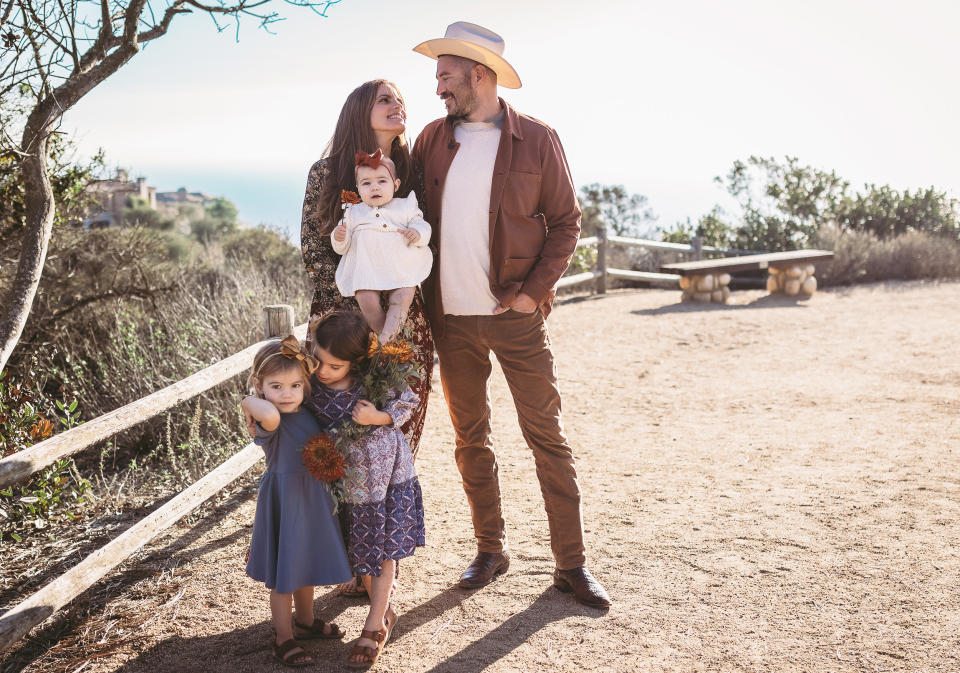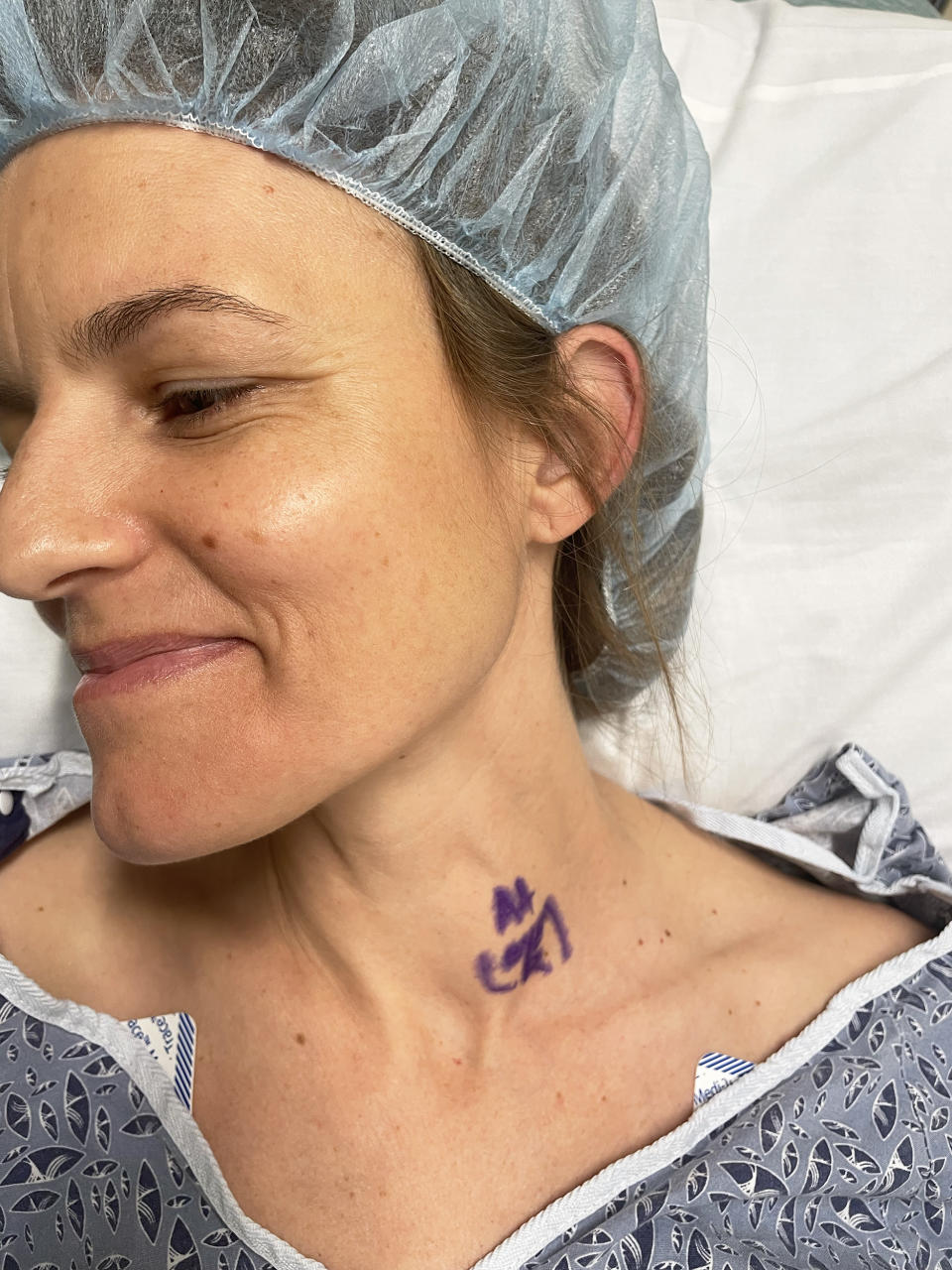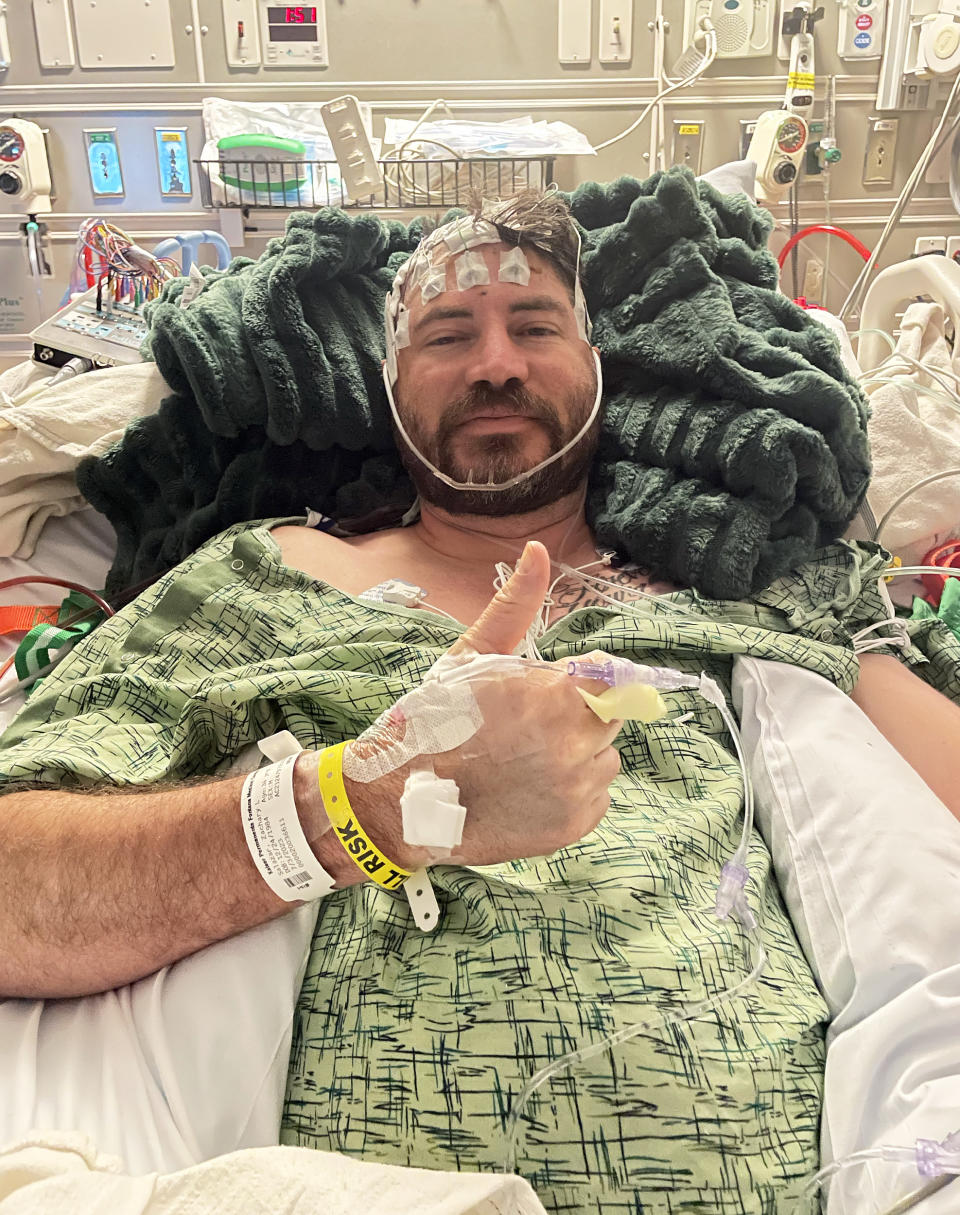Mom and dad, 38, both diagnosed with aggressive tumors months apart
When Cori Salazar’s mom noticed a mass on her neck, she visited her doctor. A biopsy was inconclusive, but the lemon-sized lump was moving her trachea, so she had surgery to remove it. The 38-year-old then learned she had an aggressive thyroid cancer.
Around the same time, her husband, Zak Salazar, also 38, began experiencing daily headaches. At first, they seemed stress-related, but then he learned he had a grapefruit sized tumor in the right frontal lobe of his brain — only months after his wife's cancer diagnosis, he was diagnosed with stage 4 brain cancer.

“Initially, we felt shocked. Is this really our lives?” Cori Salazar, from Mission Viejo, California, tells TODAY.com. “We processing as we go because there’s so much going on.”
Diagnosis months apart
Like many mothers, Cori Salazar was “crazy busy” this past spring caring for her three daughters, she recalls. She didn’t notice any symptoms, but a mass had been growing on her neck. After her mom pointed it out, Cori Salazar visited her doctor, and she underwent imaging and a biopsy.
“They confirmed something was going on,” she says. “The biopsy came back inconclusive, and so they just said if you want to biopsy again later, you can. If you want to get it out, it’s up to you.”
Because it was moving her trachea, she decided to have it removed in a surgery in mid-April.
“They confirmed that it actually was cancer, a high-grade, fast-growing thyroid cancer,” she says. “I would need to go back in for a second surgery as soon as possible to get the rest of my thyroid removed, as well as some lymph nodes to make sure that it didn’t spread.”
Around the same time, Zak Salazar began experiencing daily headaches.
“The day of Cori’s first surgery, I had a really, really bad headache,” he tells TODAY.com. “I remember sitting at her bedside in the prep room for surgery and thinking to myself, ‘Oh gosh, my head really hurts.’ I could barely keep my eyes open.”
In June, Cori Salazar returned for a second surgery to remove the rest of her thyroid and some lymph nodes. She was told her cancer was grade 1 — meaning the tumors cells and tissue looked mostly healthy. Her follow-up treatment includes blood tests to make sure that the cancer has not returned, and if it does, she may need additional therapies.
In the meantime, Zak Salazar had visited an urgent care center about his headaches. Doctors asked if he was under stress, and he mentioned his wife’s cancer diagnosis. They thought the strain could be causing them. He also suspected they might be a symptom of his sleep apnea because they felt worst in the morning.
When Zak Salazar visited an ophthalmologist for an eye exam for a new lens prescription, the doctor asked if he ever experienced headaches. He felt perplexed by this.
“I said, ‘Yes, I do. They’re completely debilitating. Why would you ask that?’” he recalls. “She said, ‘Well, your optic nerves are swollen.’”

The doctor recommended a second opinion from a colleague, who examined him immediately and confirmed the swollen nerves.
“She got very serious,” he says. “She wanted to schedule an immediate scan and an appointment with a retina specialist.”
A week later, the retina specialist examined Zak Salazar and “immediately didn’t like what he saw,” he recalls.
“He said, ‘It’s not good that you’ve been having headaches for two and a half months.' (The doctor continued), ‘It’s not good that your optic nerves are swollen. The only good news I can give you right now is that you’re walking and talking to me.’”
The retina specialist told Zak Salazar to go to the emergency room for an MRI. A doctor there told him they found a mass on the right, frontal lobe of his brain, which was so big — the size of a grapefruit — that he needed to be admitted to the hospital.
After spending the weekend surrounded by his wife and three kids, Zak Salazar underwent brain surgery on July 3. A few weeks later, they learned his tumor was a grade 4 astrocytoma.
This type of tumor begins in the part of the brain called the astrocytes, which help the neurons function properly, according to the American Association of Neurological Surgeons. It's the most common type of brain tumor in adults. Grade 4 is the most aggressive type, but Zak Salazar has a few advantages: His age, and he has biomarkers that suggest his cancer will respond well to chemotherapy and radiation.

Recovering from his surgery has gone well so far, even though he has some short-term memory loss.
“I feel like I’ve bounced back right away, and I still feel that way. Cognitively, I feel really good and sharp,” Zak Salazar says.
Cori Salazar is also recovering well and underwent her first round of blood tests two days after her husband's surgery to make sure her cancer has not returned. She passed, an especially significant win because she doesn't need any further treatment right now. If the cancer returns, she will need to take a radioactive iodine pill and isolate herself while it works through her system to avoid exposing others to radiation.
“We’re really blessed that I passed that first blood test because Zak’s is going through his stuff, and I wanted to be there for him,” she says.
Grappling with two cancer diagnoses
In early August, Zak Salazar will have a CT scan to help doctors understand where the radiation needs to be delivered. About 10 days later, he will start chemotherapy and radiation. Chemotherapy will be a daily pill for six weeks while he also undergoes radiation five days a week. After radiation, he will continue with a higher dose of chemotherapy for five days, with a 23-day break. This cycle will continue for six months.
Navigating two cancer diagnosis at once has felt tough for the young parents, but having help makes it easier.
“We obviously have such an incredible support structure around us with our friends and our family and the wider community,” Zak Salazar says. “The community has just been astounding and incredible, and it’s been an extremely humbling experience.”

The Salazars' ability to work well together also helps.
“As a married couple, we’ve been through a lot of challenging times, and we make a really, really good team,” Zak Salazar says. “We lean on each other a lot. … It's definitely lightened the load.”
Cori Salazar says they take things minute-by-minute.
“If I start thinking too far ahead into the future and worry about what’s going to happen, it takes away from the moment that we have now together, and I don’t want to lose any more time living that way,” she says. “There are lots of tears. But as hard as it’s been, it’s also truly been such a blessing to have a new outlook on life.”
This article was originally published on TODAY.com

